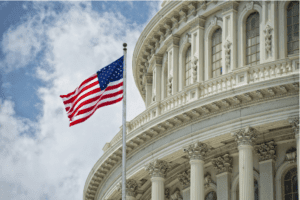
In addition, it is important to review facilities for potential energy-efficient upgrades that could qualify for the Investment Tax Credit (ITC). Proactively tracking qualified expenses throughout the year will help ensure no credits are overlooked, allowing businesses to maximize available tax savings. This approach not only reduces tax liabilities but also positions businesses for long-term financial efficiency. Use the below viz to take a look at how the three most common tax planning strategies in the cannabis industry can affect the various lines of your P&L and ultimately your tax liability. In this example, all three strategies range from Conservative to Aggressive applications.
Consistency and Future Tax Years
- While we await the actions of the new Trump administration and Congress, this is a more predictable route with a court that has consistently upheld states’ rights—an issue central to our case.”
- Once the tax year closes, you can no longer influence your tax liability for that year.
- As the cannabis industry continues to evolve, it is essential to consider the potential reforms and changes in taxation that lie ahead.
- New Hampshire stands apart from other New England states, as it has yet to embrace adult-use cannabis, maintaining alignment with 280E.
- The bill proposes a 21% retail sales tax on all products sold through marijuana stores plus an optional 3% local sales tax.
- For example, a dispensary earning $1 million in revenue might face an effective tax rate of 70% or more due to non-deductible expenses.
For example, consider a cannabis business that has capitalized $3 million in advertising expenses over the past three years. If cannabis is descheduled in 2023, this business could begin to amortize these costs, deducting approximately $200,000 annually from their taxable income over the next 15 years. This move would not only provide immediate tax relief but also improve the business’s long-term financial outlook by lowering its effective tax rate. Indeed, webinars, workshops, and informational blogs can serve as excellent platforms for this education. The cost of raw materials, such as flower and trim, used in the production of cannabis products can also be deducted as business expenses.
Election Day Special: Strategic tax planning in an uncertain political landscape
- In some cases, this means that the taxes owed can surpass the profits generated from operations, severely impacting cash flow and hindering growth potential.
- To remain competitive in the evolving cannabis industry, businesses should stay informed about upcoming changes in regulations and market dynamics.
- In addition to federal restrictions, cannabis companies must contend with a complex web of state regulations.
- However, you should strongly consider using Northstar Financial’s proprietary software as an alternative to the above mentioned.
- This includes careful consideration of entity structure, accounting methods, and ownership arrangements.
Tax rates and regulations often differ between medical and recreational cannabis. Medical cannabis may be subject to lower excise taxes in some states, but compliance requirements can vary. Navigating cannabis business taxation may feel like threading a needle in the dark, but with the right knowledge and tools, you can succeed. Staying compliant, investing in expertise, and keeping an eye on legislative changes are the keys to thriving in this challenging yet rewarding industry. Popular options include Green Bits, MJ Freeway, and LeafLogix, all designed with the unique needs of cannabis businesses in mind.
David J. Gravel, CPA, MPAc

These business owners should be aware that non-filers are an IRS enforcement priority. Cannabis businesses have no exemption from their employment tax obligations, and as with other small businesses, they often need to make quarterly tax payments. These business owners should always pay their taxes on time to avoid interest and penalties.
The cannabis accounting services we offer, include, but are not limited to:
As a result, their federal income tax liability is calculated based on gross income rather than net income, leading to significantly higher effective tax rates. Under Section 280E, businesses engaged in the trafficking of controlled substances, including cannabis, are prohibited from deducting ordinary business expenses from their taxable income. This means that cannabis businesses can only deduct the cost of goods sold (COGS), which includes expenses directly related to the production of cannabis products. Unlike other industries where businesses can deduct a wide range of expenses-such as rent, utilities, salaries, and marketing costs-cannabis companies face a much narrower scope of allowable deductions. Cannabis businesses face unique taxation challenges that significantly impact their profitability and growth potential. This section prohibits cannabis companies from deducting ordinary business expenses from their federal taxes due to the federal prohibition on marijuana.

Connecticut: Navigating Tax Provisions in the Adult-Use Market
This process typically involves timing income and expenses, planning purchases, and considering the size of your net sales income. “BGM” is the brand name under which BGM CPA, LLC and BGM Group, LLC provide professional services. BGM CPA, LLC and BGM Group, LLC practice as an alternative practice structure in accordance with the AICPA Code of Professional Conduct and applicable law, regulations, and professional standards.
Strategies to Ensure Tax Compliance
- This decision to retain the federal provision has undoubtedly affected the financial dynamics of the cannabis industry in the state.
- This restriction significantly inflates effective tax rates, leaving many operators struggling to stay afloat despite healthy revenues.
- Municipal taxes also apply when customers possess cannabis within city limits.
- Even beyond these high hurdles, there are some potential opportunities to expand your tax & accounting business by serving the cannabis industry.
- This misalignment does create some challenges in regard to taxes, but the Internal Revenue Service (IRS) still requires the payments of taxes by cannabis-related businesses.
Understanding and complying with state and local tax requirements can be daunting for cannabis businesses, especially given the constant changes in laws and regulations. However, there are strategies that companies can adopt to navigate these taxes effectively. Given the stringent restrictions and high cannabis accounting stakes involved, these businesses need to maintain impeccable accounting records and be prepared for potential audits by the IRS.
The Future Outlook
While challenges will likely remain, the GreenState team hopes the space sees positive developments—and a chance to thrive. “If we strive to be good humans first, we can extend a hand, partner, and lift each Accounting for Churches other up. With so much uncertainty about the future, many operators find it challenging to be optimistic—and rightfully so.


